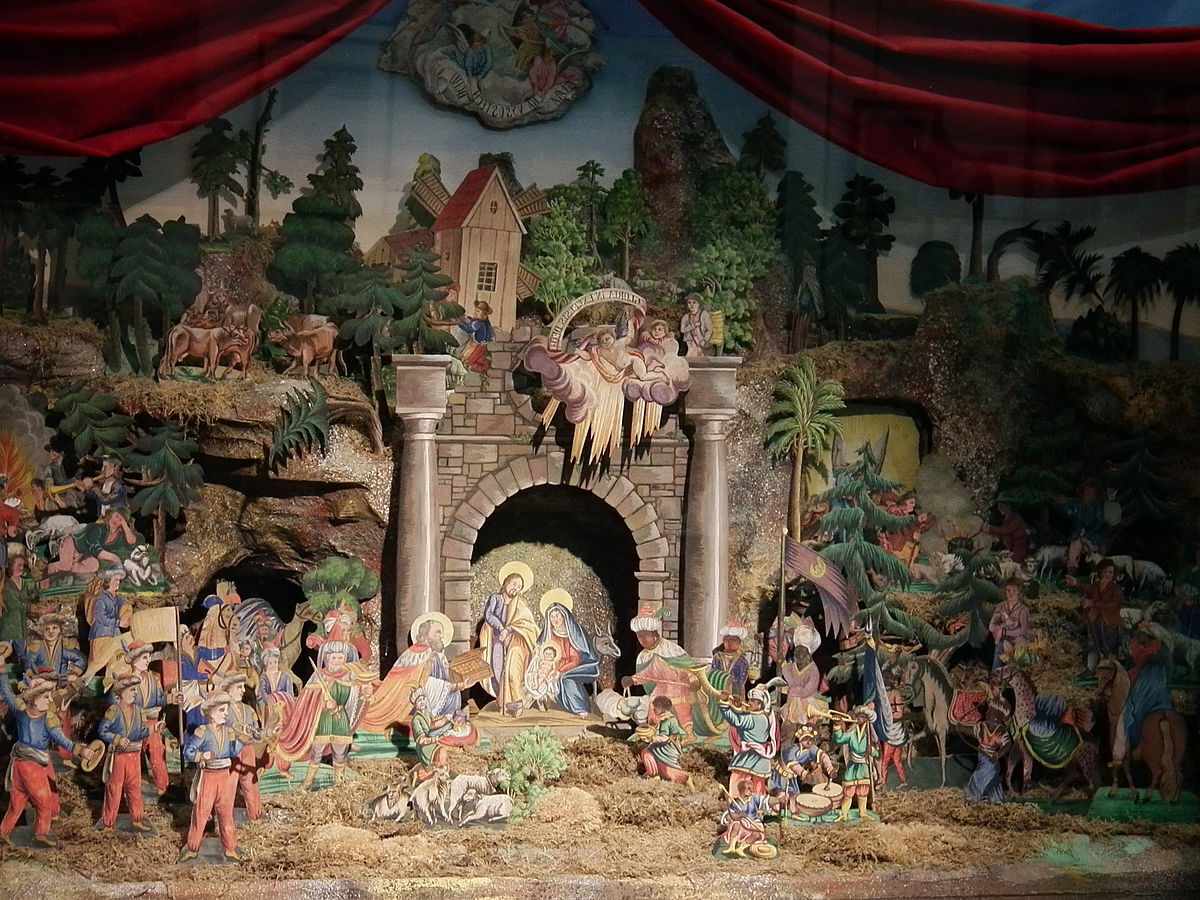
Piety often gets misunderstood as just being religious, but there's so much more to it. This blog post will dive into 40 facts about piety that will surprise you. Did you know that piety isn't just about faith? It also involves respect, loyalty, and duty to family and community. Piety can be found in various cultures and traditions, each with unique expressions. From ancient rituals to modern practices, piety shapes how people live and interact. Whether you're curious about historical perspectives or contemporary views, these facts will give you a deeper understanding of what piety truly means. Ready to learn more? Let's get started!
What is Piety?
Piety often refers to a deep sense of reverence and devotion, typically towards a deity or higher power. It encompasses various practices, beliefs, and attitudes that reflect a person's commitment to their faith. Let's explore some fascinating facts about piety.
-
Piety is derived from the Latin word "pietas," which means duty or devotion. This term originally referred to a sense of duty towards one's family, country, and gods.
-
In ancient Rome, piety was considered one of the highest virtues. Romans believed that showing devotion to the gods, family, and country was essential for maintaining social order and harmony.
-
Piety is a central concept in many religions. Whether it's Christianity, Islam, Hinduism, or Buddhism, piety plays a crucial role in guiding the moral and spiritual lives of believers.
-
In Christianity, piety is one of the seven gifts of the Holy Spirit. These gifts are believed to be bestowed upon believers to help them live a righteous life.
-
Islam emphasizes piety through the concept of "Taqwa." Taqwa refers to a heightened sense of consciousness and fear of God, encouraging Muslims to live according to divine guidance.
Expressions of Piety
Piety can be expressed in various ways, from daily rituals to lifelong commitments. Here are some intriguing ways people show their devotion.
-
Prayer is a common expression of piety. Many religious traditions encourage daily prayers as a way to connect with the divine.
-
Fasting is another form of piety. For example, Muslims fast during Ramadan, while Christians may fast during Lent.
-
Pilgrimages are acts of piety. Visiting sacred sites like Mecca, Jerusalem, or Varanasi allows believers to deepen their faith.
-
Charity is often seen as a pious act. Many religions encourage giving to the less fortunate as a way to demonstrate compassion and humility.
-
Reading and studying sacred texts is a form of piety. Engaging with scriptures helps believers understand their faith more deeply.
Historical Perspectives on Piety
Throughout history, piety has shaped cultures and societies in profound ways. Here are some historical insights.
-
In medieval Europe, piety influenced art and architecture. Cathedrals, monasteries, and religious paintings were created to inspire devotion.
-
The concept of piety was central to the Renaissance. Artists like Michelangelo and Leonardo da Vinci infused their works with religious themes.
-
Piety played a role in the Reformation. Leaders like Martin Luther emphasized personal devotion and piety over institutional rituals.
-
In ancient Greece, piety was linked to civic duty. Citizens were expected to honor the gods through public rituals and sacrifices.
-
Confucianism in China emphasizes filial piety. This form of piety focuses on respect and duty towards one's parents and ancestors.
Modern Interpretations of Piety
In today's world, piety continues to evolve and adapt to contemporary life. Here are some modern takes on this timeless virtue.
-
Social media has become a platform for expressing piety. Many people share religious quotes, prayers, and reflections online.
-
Interfaith dialogue promotes piety through understanding. Engaging with different religious traditions can deepen one's own faith.
-
Environmental stewardship is seen as an act of piety. Many believers view caring for the planet as a way to honor the Creator.
-
Volunteering is a modern expression of piety. Helping others through community service reflects a commitment to compassion and kindness.
-
Meditation and mindfulness practices are embraced by many as forms of piety. These practices help individuals connect with their spiritual selves.
Piety in Literature and Art
Piety has inspired countless works of literature and art, leaving a lasting impact on culture. Here are some notable examples.
-
Dante's "Divine Comedy" explores themes of piety and redemption. This epic poem takes readers on a journey through Hell, Purgatory, and Heaven.
-
John Milton's "Paradise Lost" delves into the consequences of piety and impiety. The poem tells the story of the fall of man and the struggle between good and evil.
-
Religious iconography in art often depicts acts of piety. Paintings of saints, angels, and biblical scenes inspire devotion.
-
Leo Tolstoy's "War and Peace" examines the role of piety in human life. Characters grapple with questions of faith, morality, and destiny.
-
Hymns and religious music express piety through song. Composers like Johann Sebastian Bach created masterpieces that elevate the spirit.
Cultural Variations of Piety
Different cultures have unique ways of expressing and understanding piety. Here are some fascinating cultural variations.
-
In Japan, Shinto practices emphasize piety towards nature and ancestors. Rituals and festivals honor the spirits of the natural world.
-
Hinduism celebrates piety through festivals like Diwali and Holi. These events bring communities together in acts of worship and joy.
-
Native American spirituality often involves piety towards the Earth. Ceremonies and rituals honor the interconnectedness of all life.
-
In Sikhism, piety is expressed through selfless service. Sikhs are encouraged to engage in "seva," or community service, as a form of devotion.
-
Judaism emphasizes piety through daily prayers and observance of the Sabbath. These practices help maintain a connection with God and community.
Piety and Personal Growth
Piety can also play a significant role in personal development and growth. Here are some ways it influences individuals.
-
Piety fosters a sense of purpose and meaning. Believers often find direction and motivation through their faith.
-
It encourages ethical behavior. Pious individuals strive to live according to their moral and spiritual principles.
-
Piety can provide comfort during difficult times. Faith offers solace and hope in the face of adversity.
-
It promotes a sense of community. Shared religious practices and beliefs bring people together.
-
Piety can lead to inner peace. Spiritual practices like prayer and meditation help calm the mind and soul.
Challenges to Piety
Despite its many benefits, piety can also face challenges in the modern world. Here are some obstacles believers might encounter.
-
Secularism can challenge traditional expressions of piety. In increasingly secular societies, religious practices may be less common.
-
Materialism can distract from spiritual pursuits. The focus on wealth and possessions can overshadow the importance of faith.
-
Religious intolerance can hinder piety. Discrimination and prejudice against certain faiths can make it difficult for believers to practice openly.
-
Busy lifestyles can limit time for pious activities. Work, school, and other commitments may leave little time for prayer and reflection.
-
Doubt and skepticism can challenge personal faith. Questioning one's beliefs is a natural part of spiritual growth but can be difficult to navigate.
Final Thoughts on Piety
Piety, often misunderstood, holds a significant place in various cultures and religions. It’s not just about rituals or outward displays of devotion. True piety involves a deep, personal connection to one's beliefs and values. This connection can guide actions, influence decisions, and shape character. Understanding piety helps us appreciate the diverse ways people express their spirituality and commitment. It’s a reminder that, despite differences, many seek a higher purpose or moral compass. Whether through prayer, meditation, or acts of kindness, piety reflects a universal human desire for meaning and connection. So next time you see someone practicing their faith, remember there's often a profound story behind those actions. Embracing this understanding can foster greater empathy and respect in our increasingly diverse world.
Was this page helpful?
Our commitment to delivering trustworthy and engaging content is at the heart of what we do. Each fact on our site is contributed by real users like you, bringing a wealth of diverse insights and information. To ensure the highest standards of accuracy and reliability, our dedicated editors meticulously review each submission. This process guarantees that the facts we share are not only fascinating but also credible. Trust in our commitment to quality and authenticity as you explore and learn with us.


